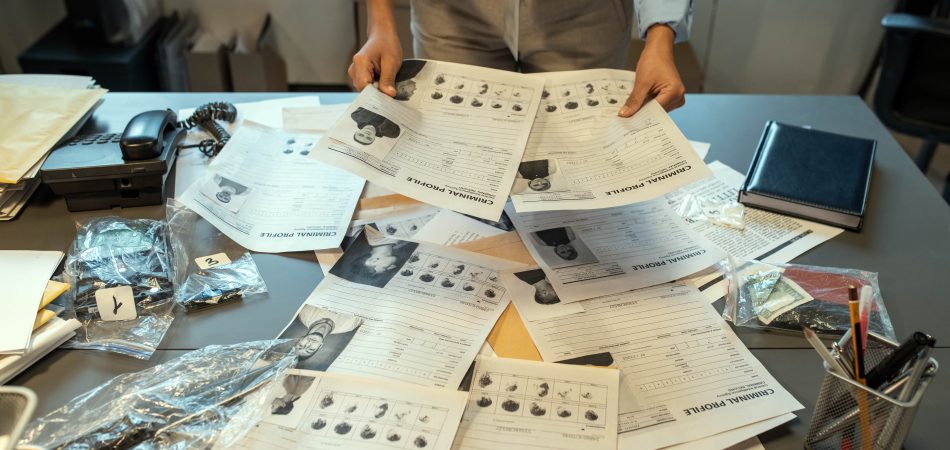
When you or a loved one is facing criminal charges in Louisiana, one of the first questions that comes to mind is often the most pressing: “How long will this take?” This question carries weight far beyond simple curiosity.
A criminal case in Louisiana can take anywhere from a few weeks for misdemeanors to over two years for serious felonies. Factors like the type of charge, court backlog, and evidence availability can all affect how long your case takes.
The uncertainty of not knowing when your case will resolve can create overwhelming stress that affects every aspect of your life. Understanding the typical timeline of a criminal case can help you prepare mentally, emotionally, and practically for the road ahead.

You might find yourself unable to make important life decisions because you do not know what your future holds. Employment opportunities may be put on hold while background checks remain pending. Family relationships can strain under the weight of not knowing when normalcy might return.
From a practical standpoint, the timing of your case affects different aspects of your life. If you are released on bond, you may face restrictions on travel, work, or other activities that make it difficult to maintain your normal routine.
The financial burden of legal fees and court costs can accumulate over time, making longer cases more expensive. For those who remain in custody, every day that passes represents time away from family, work, and the life you are trying to rebuild.
While every case is unique and depends on many factors, understanding the general procedures and typical timelines can help you plan and reduce some of the anxiety that comes with uncertainty.
The legal system operates according to established procedures and timeframes, and knowing what to expect at each stage can provide a sense of control during a time when much feels beyond your influence.
To understand how long a criminal case takes, you first need to understand the key stages that every case must navigate.
Think of the criminal justice process as a series of checkpoints, each with its own purpose and timeline. While not every case will experience every stage in the same way, understanding this basic framework will help you see where your case fits in the overall process.
Understanding the criminal justice process is easier when you think of it as a series of checkpoints, each serving a specific purpose. Here are the main stages your case will likely pass through:
The journey begins with arrest and booking. During this stage, you are taken into custody, your personal information is recorded, and you are processed into the jail system. This typically happens within hours of your arrest and sets the entire legal process in motion.

The bond hearing is crucial because it affects whether you will spend the duration of your case in jail or at home.
The formal filing of charges happens within days or weeks of your arrest. This is when the prosecutor reviews the evidence and decides exactly what charges to bring against you.
Sometimes the charges filed are different from what you were initially arrested for, as the prosecutor has time to review the evidence more thoroughly and determine what charges it will support.
This is your first formal court appearance, where you will be informed of the charges against you and asked to enter a plea. This usually occurs within two to four weeks of the charges being filed.
At arraignment, you will typically enter a plea of not guilty, which preserves all your rights and allows your attorney time to investigate the case and explore your options.
The pretrial phase is often the longest part of the process and can involve numerous motions and hearings.
During this time, your attorney will review all the evidence, file any appropriate motions to suppress or dismiss charges, and engage in plea negotiations with the prosecutor. This phase can last anywhere from a few months to over a year, depending on the complexity of your case.
If your case proceeds to trial, this stage represents the culmination of all the pretrial preparation. Trials can be before a judge alone (bench trial) or before a jury, and they can last anywhere from a single day to several weeks, depending on the complexity of the case and the number of witnesses.

Your attorney should take this opportunity to file motions for a post-judgment verdict of acquittal and for a new trial at this time as well.
Both motions must be filed between a verdict and sentencing or else they are waived. Hearings on these motions can delay things by several weeks.
If you are convicted, you have the right to appeal your conviction or sentence. Appeals can add months or even years to the overall timeline of your case, but they provide an important safeguard against errors that might have occurred during the trial process.
Sometimes the longest delay is between arrest and charging. The State may wait one to two years before charging, especially if if you bonded out on a low level misdemeanor.
It is important to remember that these are general ranges, and your specific case may fall outside these timeframes depending on various factors that we will explore in detail.
The nature of the charges against you serves as the foundation for your case timeline.
The legal system recognizes that when someone faces the possibility of significant prison time, they deserve more procedural protections and more time to prepare an adequate defense.
For example, a murder case might involve forensic evidence that takes months to analyze, multiple expert witnesses who need time to review materials and prepare reports, and complex legal issues that need extensive research and motion practice.
One of the most frustrating aspects of the criminal justice system for defendants involves dealing with court backlogs and scheduling delays that are largely beyond anyone’s control.
The time required to gather and analyze evidence can significantly impact your case timeline in many ways:
The number and complexity of pretrial motions filed in your case can affect the timeline:
While this can be frustrating, successful plea negotiations may result in better outcomes than going to trial.

Louisiana Code of Criminal Procedure Article 701 establishes specific time limits for bringing cases to trial after a motion for a speedy trial has been filed.
For misdemeanors, trial must begin within 30 days if you are in custody or 60 days if you are released on bond. If you are in custody, the timeframe is shorter because the burden of remaining in jail while awaiting trial is considered more severe.
For felonies, the timeframes are longer: trial must commence within 120 days if you are in custody and within 180 days if you are not in custody.
These longer timeframes recognize that felony cases are more complex and require more preparation time for both sides.
These timeframes begin running from when you and your attorney file a motion declaring you want a speedy trial and all other issues in the case, including discovery and motions are resolved.
But certain events can stop or restart the clock, such as your unavailability, continuances that you request, or appeals of pretrial rulings.
If the deadlines are missed without good cause, your attorney may file a motion for violation of speedy trial rights.
But under Louisiana law, the remedy for statutory speedy trial violations in most cases is release from bond obligations rather than dismissal of charges.
There are also constitutional speedy trial rights that are separate from the statutory requirements. Constitutional violations can potentially result in dismissal of charges, but these violations are extremely rare and require showing that the delay was unreasonable and prejudicial to your defense.
Judges possess the discretion to determine if good cause justifies delays. Factors that might justify delays include complex legal issues, the unavailability of essential witnesses, the need for expert testimony, or court calendar congestion.
The arraignment for a misdemeanor case may happen within days or weeks of arrest if the prosecution is not delayed and is prioritizing felony file reviews. At this point, you will be formally notified of the charges and asked to enter a plea. Most defendants enter a plea of not guilty at this stage to preserve their options.
Pretrial hearings and plea discussions go on for three months after arraignment. During this time, your attorney will review the evidence, research legal issues, and engage in discussions with the prosecutor about possible resolutions to your case.
Trial or final resolution typically happens within three to six months of arrest unless there are delays.
Even misdemeanor cases can experience delays due to missing evidence, rescheduling of hearings, or motion practice.
Examples:
Felony cases involve more complex procedures and longer timeframes, reflecting the serious nature of the charges and the potential consequences.
Arraignment for felony cases often occurs within 30 days of arrest, though this can vary depending on court schedules and whether you are in custody. The arraignment serves the same purpose as in misdemeanor cases but may involve more formal procedures.

Expert witnesses are more commonly used in felony cases, especially those involving forensic evidence, mental health issues, or technical matters. Retaining and preparing these experts takes time and can extend the pretrial phase significantly.
Discovery in felony cases is often more extensive than in misdemeanor cases. Your attorney may need to review police reports, witness statements, forensic evidence, and other materials that can be voluminous and complex.
If no plea agreement is reached, scheduling a felony trial can take six to twelve months or longer from the time the case is ready for trial. Trial scheduling depends on court availability, attorney schedules, and the expected length of the trial.
Sentencing typically occurs 30 to 60 days after a conviction. This delay allows time for the preparation of a pre-sentence investigation report, which provides the judge with background information about you and recommendations for sentencing.
Cases involving multiple defendants can be complex and time-consuming. Coordinating schedules among multiple attorneys and managing conflicts of interest between and addressing the different strategic interests of co-defendants can cause significant delays.
Cases involving charges across multiple jurisdictions can also take longer. If you are facing charges in more than one parish or if federal charges are also involved, coordinating between different court systems can add months to the process.
Murder cases, sex crimes, and armed robbery cases often involve additional hearings, motions, and expert witnesses that can extend the timeline. These cases need thorough investigation from both sides.
Capital cases, where the death penalty is a possibility, can take years to resolve due to the extensive procedural protections built into the system for these ultimate cases.
The lingering effects of the COVID-19 pandemic continue to impact court schedules throughout Louisiana. Many courts experienced significant delays during the pandemic, creating backlogs that are still being worked through.
While courts have generally returned to normal operations, the backlog of cases that accumulated during the pandemic can still cause delays.
Either the prosecution or the defense may request continuances for different reasons. The prosecution might need more time to gather evidence or prepare for trial, while the defense might need additional time to investigate the case or prepare for complex legal issues.
While continuances can be frustrating, they are necessary to ensure that both sides have time to prepare. A well-prepared case is more likely to result in a fair outcome than a rushed one.
While much of the criminal case timeline is beyond your direct control, there are important things you can do to help your case and manage the stress of waiting.
Communicate with your attorney regularly to keep informed about your case’s progress and ensure that deadlines are met. Your attorney should keep you updated about significant developments, upcoming hearings, and any changes in strategy or timeline.
Do not hesitate to ask questions if you do not understand something about your case or if you are concerned about delays. A good attorney will take the time to explain what is happening and why certain steps are necessary.

The earlier you can provide these materials to your attorney, the more time they will have to incorporate them into your defense strategy.
New charges can affect your bond status, complicate plea negotiations, and make your situation much more difficult.
Follow all the conditions of your bond carefully, avoid situations where you might encounter law enforcement, and make choices that demonstrate your commitment to resolving your legal issues responsibly.
An experienced criminal defense attorney understands how to manage the timing of your case strategically. Sometimes it is in your interest to move quickly toward resolution, while other times strategic delays can work in your favor.
Your attorney should clearly explain your options throughout the process and help you understand the potential benefits and risks of plea agreements versus going to trial. This includes helping you understand how timing considerations might affect these decisions.
When your case appears to be stalled, your attorney can take action to push the court or prosecutor’s office to move forward. This might involve filing motions to compel discovery, requesting status conferences, or raising speedy trial issues.
Your attorney can also help you understand when delays are normal and when they might indicate a problem that needs to be addressed.
If you or someone you know is facing criminal charges and wants to understand more about the likely timeline and what to expect, speaking with a qualified Louisiana criminal defense attorney such as the Ikerd Law Firm is the best way to get specific information about your situation.
An experienced attorney can evaluate your case, explain the likely timeline, and help you understand your options for protecting your rights throughout the process.
Give the Ikerd Law Firm a call at (337) 366-8994 for a free consultation.